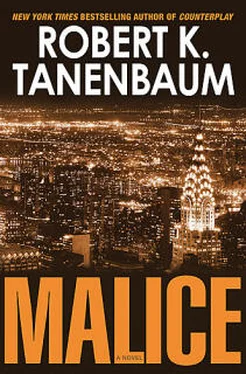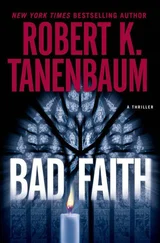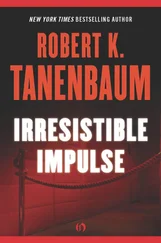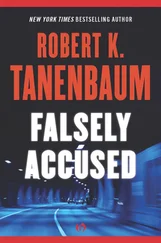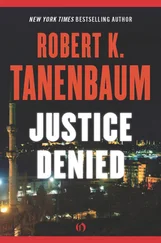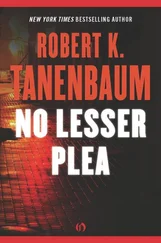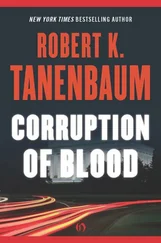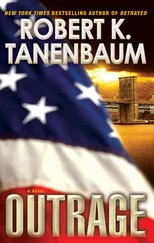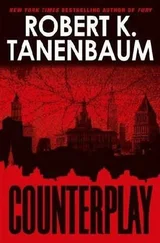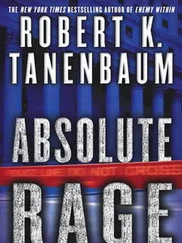Robert Tanenbaum - Malice
Здесь есть возможность читать онлайн «Robert Tanenbaum - Malice» весь текст электронной книги совершенно бесплатно (целиком полную версию без сокращений). В некоторых случаях можно слушать аудио, скачать через торрент в формате fb2 и присутствует краткое содержание. Жанр: Криминальный детектив, на английском языке. Описание произведения, (предисловие) а так же отзывы посетителей доступны на портале библиотеки ЛибКат.
- Название:Malice
- Автор:
- Жанр:
- Год:неизвестен
- ISBN:нет данных
- Рейтинг книги:4 / 5. Голосов: 1
-
Избранное:Добавить в избранное
- Отзывы:
-
Ваша оценка:
- 80
- 1
- 2
- 3
- 4
- 5
Malice: краткое содержание, описание и аннотация
Предлагаем к чтению аннотацию, описание, краткое содержание или предисловие (зависит от того, что написал сам автор книги «Malice»). Если вы не нашли необходимую информацию о книге — напишите в комментариях, мы постараемся отыскать её.
Malice — читать онлайн бесплатно полную книгу (весь текст) целиком
Ниже представлен текст книги, разбитый по страницам. Система сохранения места последней прочитанной страницы, позволяет с удобством читать онлайн бесплатно книгу «Malice», без необходимости каждый раз заново искать на чём Вы остановились. Поставьте закладку, и сможете в любой момент перейти на страницу, на которой закончили чтение.
Интервал:
Закладка:
O'Toole's university had hired a lawyer familiar with the NCAA to represent him. The lawyer had assured him that if he kept his mouth shut at the hearing, except to apologize, the worst that would happen was he'd have to make the apology public and get suspended for a few games. But the NCAA wanted blood. O'Toole and his lawyer had sat in stunned silence when the hearing board handed down their punishment: Coach Fred O'Toole would be prohibited from coaching at the college level for seven years.
O'Toole wanted to fight it and demand a public hearing, or even take the NCAA to court. But the same lawyer had advised him to accept the punishment "for now."
"We'll let this die down," he said, his arm draped around O'Toole's shoulders. "Then when there's a few different faces on the board in a couple of years, we'll come back and convince them that the punishment was far too severe. But if we fight it now, the good ol' boys with the NCAA will make you pay. Those suckers can carry a grudge," the lawyer further opined, "and their word is law when it comes to college athletics. However, go along, don't say anything inflammatory to the press, and it will actually work in your favor. Those same boys will see that you can be a 'team player,' and they'll be more sympathetic after you've done a little penance."
Karp had only learned of his friend's treatment and the lawyer's recommendation to take his medicine after the fact. "You should have called me," he'd admonished O'Toole.
"I didn't want to bother you," O'Toole replied. "This other lawyer has spent his entire career handling cases with the NCAA and seemed to know what he was doing."
"But that's part of the problem," Karp had growled. "You were being advised by someone who has a stake in not upsetting the powers that be with the NCAA. He has to deal with them a lot, which means picking his battles carefully, hoping they throw him the occasional bone. He's not about to buck the system."
"What do you think I should do?" O'Toole had asked.
"You fight them," Karp replied. "There's no guarantee they're going to be any fairer in two years than they are now. From what you've told me, the NCAA board is the arresting cop, judge, jury, and executioner. They follow their own rules, no meaningful due process, no constitutional protection, which translates into precious little fairness."
O'Toole thanked him for the advice, but in the end he'd gone with the counsel of his attorney. The next time he and Karp talked, he tried to explain that if he stirred up a lot more press, it might be tough to find a job of any kind in coaching. He had the sound of a defeated man when he called a couple of weeks later to say that he'd accepted a position teaching physical education and coaching the boys' basketball team at a high school in Mississippi.
"It'll be fun," O'Toole said, trying to put on a brave face. "It will give me a chance to get back to teaching the basics."
Karp heard the lie in his friend's voice. Fred O'Toole was never going to be content to be a high school basketball coach. His dream was to coach a college team into the finals of the NCAA tournament and win it. Karp couldn't put his finger on it, but his friend's seeming acceptance of his punishment filled him with a sense of foreboding.
However, this was a time when they both had their families and careers to manage. Sometimes months went by between telephone calls and letters. Then it was mostly catching up through Christmas cards with an O'Toole form letter, and telephone calls to wish each other a happy birthday, which always ended with vows to not let so much time go by before they talked again.
O'Toole had waited three years before appealing his suspension to the NCAA. But it was rejected without even a hearing. Two more years passed. Another appeal was made and rejected. The good ol' boys really were carrying a grudge, so O'Toole thought.
Then came the Christmas when no card or letter arrived. Karp waited until early January and then called to see what was up.
"Jenny's dead," O'Toole said, his voice sounding hollow. "Ovarian cancer. They found it in October and she died the day before Christmas. Sorry…I just haven't had the heart to let everybody know." He'd then broken down and cried while Karp, two thousand miles away, could do nothing more than offer condolences.
The death of his wife left O'Toole alone except for his brother, Mikey. The two of them had come to visit the Karp-Ciampi clan in New York, where Butch got a chance to get to know the younger O'Toole. A polite, soft-spoken young man, Mikey had been a good student, "more like you than me in that regard," Fred had said, but instead of basketball, he'd been a college baseball player.
Mikey had no illusions about taking his game to the pros after graduation. Instead, he'd followed his brother's footsteps and became a coach, paying his dues at small schools until being offered the position of head coach at the University of Northwest Idaho in Sawtooth. It was a small Division II university, but had become a respected regional baseball school under Mikey O'Toole.
Meanwhile, Fred tried to make the best of coaching high school boys, as the NCAA had shown no sign of relenting. Seven years finally passed, but even with his suspension over, it was clear that Fred O'Toole's name was mud in college basketball circles.
The day before Christmas, on the fifteenth anniversary of his wife's death, Fred arrived back at the campus of the Pac-10 school he'd been forced to leave. He walked across campus to the gym and at center court blew his brains out with the gun he'd hidden in his waistband.
There'd been a sympathetic story about Fred O'Toole in Sports Illustrated, in which a bitter Mikey O'Toole was quoted as saying that his brother had been blackballed and treated as a pariah because he'd dared to question the NCAA about an allegation issue "everyone knows is true."
"The worst part is that there are rules and even laws being broken on college campuses every day that are far worse than anything my brother might have said," Mikey O'Toole went on. "But the NCAA will do anything to save itself from embarrassment or taking a good hard look at itself."
A spokesman for the NCAA had been quoted as saying the association felt for Mikey O'Toole, but also that he was wrong. "The NCAA had a duty to maintain the integrity of the system. Coach Fred O'Toole impugned that integrity and paid the price for it."
The last time Karp had seen Mikey was at his brother's funeral. Five years later, Karp was reflecting on a telephone call that, as Yogi Berra once quipped, was "like deja vu all over again."
Mikey O'Toole told him that he'd been accused of recruiting violations and then suspended by the university pending a hearing before the American Collegiate Athletic Association, which governed the conference to which the University of Northwest Idaho belonged.
The ACAA hearing in Boise, Idaho, a short time later was "over before it began," O'Toole complained. He'd had an attorney with him-a friend from Sawtooth named Richie Meyers-but no opportunity to defend himself from the charges "or even a chance to have a public hearing at the university so that I could clear my name."
Instead, the hearing panel had immediately voted to suspend him for ten years, after which the university had fired him. Meyers had since filed a civil lawsuit with the U.S. District Court in Boise, seeking reinstatement and damages. "But more important to me is the chance to prove I didn't do what they said I did," O'Toole told Karp. "If we don't win it, I'm ruined. No one will touch me. I'm damaged goods."
"Are you guilty?" Karp had asked.
"Hell no," O'Toole replied. "I'm being set up by a player I kicked off the squad for, among other things, raping a young woman. I think the ACAA's interest in going after me is in part because of my brother and also what I said at his funeral; they're a stepchild of the NCAA, abide by all of the association's rules and regulations, and they also get some of their funding from National Big Brother. There's also something funny about the university's attitude, too, that I can't quite figure out."
Читать дальшеИнтервал:
Закладка:
Похожие книги на «Malice»
Представляем Вашему вниманию похожие книги на «Malice» списком для выбора. Мы отобрали схожую по названию и смыслу литературу в надежде предоставить читателям больше вариантов отыскать новые, интересные, ещё непрочитанные произведения.
Обсуждение, отзывы о книге «Malice» и просто собственные мнения читателей. Оставьте ваши комментарии, напишите, что Вы думаете о произведении, его смысле или главных героях. Укажите что конкретно понравилось, а что нет, и почему Вы так считаете.
